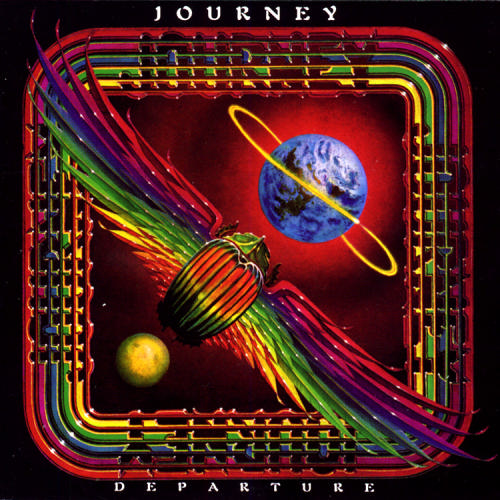
Departure (1980)

1. Any Way You Want It
2. Walks Like a Lady
3. Someday Soon
4. People and Places
5. Precious Time
6. Where Were You
7. I'm Cryin'
8. Line of Fire
9. Departure
10.Good Morning Girl
11.Stay Awhile
12.Homemade Love
By the time Departure rolled around, Journey had solidified their status as rising titans of arena rock. The band hadn't quite reached cultural ubiquity, but the path was becoming increasingly inevitable. Departure doesn’t aim to reinvent what the group had already built with Infinity and Evolution—and that’s precisely the point. Continuity, in this case, is not complacency but confidence. The sound remains rooted in the lush, melodic rock formula they had refined over the past two albums, and their growing fan base was all the better for it.
There are, however, a few attempts at subtle deviation from the script. Not all of them are fully convincing, but they do offer glimpses of a band testing the limits of its palette. Precious Time flirts with blues-rock territory, aided in no small part by a gritty harmonica line that lends the song a swaggering edge. Similarly, Walks Like a Lady leans hard on the Hammond B-3 and carries a distinctly barroom flavor. Little did fans know, it would serve as Gregg Rolie’s unofficial curtain call—though the writing credit goes solely to Steve Perry, the track has the air of a swan song.
The most successful of these stylistic forays may well be People and Places, an atmospheric piece that borders on new age but never loses its grounding in Journey’s now-signature sonic warmth. What stands out most here—indeed, across much of the album—is the band’s growing proficiency with vocal harmonies, a skill set that had been virtually nonexistent in their early fusion-heavy days. The transformation is nothing short of remarkable.
Still, lest anyone think the group had gone soft, Journey prove once again that they haven’t forgotten how to rock. Any Way You Want It is the obvious showpiece—anthemic, infectious, and impossible to ignore. Yet Where Were You deserves nearly as much acclaim, possibly more. It boasts a sharper edge and arguably packs a greater punch, even if it remains criminally overlooked in comparison.
As the album winds down, a touch of fatigue begins to show. The final four tracks feel fragmented, shorter in length and lesser in impact, as though the band were simply tidying up loose ends. That said, even their filler tracks are executed with a polish most bands would envy.
Curiously, Departure also represents one of the few instances in Journey's discography where the lineup remained stable from the previous album—a rare feat in a group often characterized by its revolving door of personnel. The sound here, arguably more than on any previous release, captures the essence of what would become universally recognized as Journey’s defining style: soaring melodies, earnest delivery, and the unmistakable spirit of arena rock at its most heartfelt.
Go back to the main page
Go To Next Review